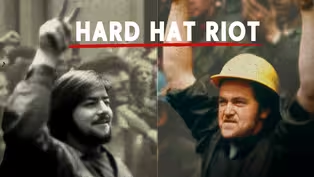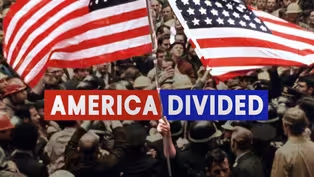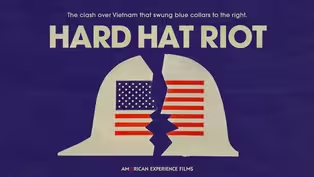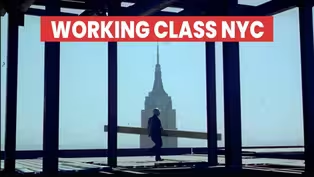
Chapter 1 | Hard Hat Riot
Preview: Season 37 Episode 5 | 8m 55sVideo has Closed Captions
Watch a preview of Hard Hat Riot.
Watch a preview of Hard Hat Riot.
Problems playing video? | Closed Captioning Feedback
Problems playing video? | Closed Captioning Feedback
Corporate sponsorship for American Experience is provided by Liberty Mutual Insurance and Carlisle Companies. Major funding by the Alfred P. Sloan Foundation.

Chapter 1 | Hard Hat Riot
Preview: Season 37 Episode 5 | 8m 55sVideo has Closed Captions
Watch a preview of Hard Hat Riot.
Problems playing video? | Closed Captioning Feedback
How to Watch American Experience
American Experience is available to stream on pbs.org and the free PBS App, available on iPhone, Apple TV, Android TV, Android smartphones, Amazon Fire TV, Amazon Fire Tablet, Roku, Samsung Smart TV, and Vizio.
Buy Now
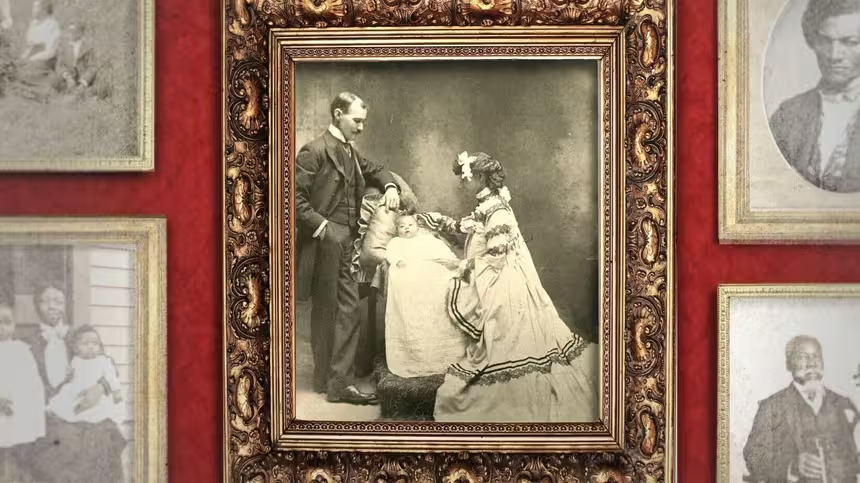
When is a photo an act of resistance?
For families that just decades earlier were torn apart by chattel slavery, being photographed together was proof of their resilience.Providing Support for PBS.org
Learn Moreabout PBS online sponsorship♪ ♪ (explosions) NARRATOR: In the midst of the Vietnam war... (protestors chanting) ...lower Manhattan becomes a battlefield.
WILLIAM ABBATE: Word came down that there's going to be a demonstration.
We got a major war going on, we got our soldiers being killed and then you have demonstrators who seem to be rooting for the other side.
(protestors chanting) REPORTER: The reaction on the campuses was swift and predictable.
The students and many of their teachers were against the President.
PROTESTOR: We're gonna stop Wall Street tomorrow.
We're gonna stop New York City on Monday, and we're gonna bring the whole country down with us next week.
And then Nixon's gonna have to respond.
DENNIS MILTON: Whether the government is right or wrong, with a war, you should support the troops.
DAN ROSSI: And you take that flag and throw it on the floor and step on it?
You've just made it personal.
NARRATOR: A clash between anti-war protestors and New York City's working class begins to redraw political party lines.
We are the second American Revolution.
We are winning.
I approve of what you're doing.
Because it's gonna cause a revolution, but not your kind-- my kind!
MICHAEL BALZANO: We watched that riot, and I thought what we were looking at was the beginning of a class struggle between, let's call them a university elite, and the working class.
DAVID PAUL KUHN: Richard Nixon will seize this moment and shift the Republican Party from Blue Bloods to Blue-Collars.
And ultimately write a culturally populist playbook that would guide Republican candidates for more than a half-century after.
(door rumbling, creaking) (indistinct chatter) GARY LABARBERA: Hard hat.
Hard is the right word.
This is a tough industry to work in.
ABBATE: You're working on cooling towers on a building that's 50 stories high and the wind's blowing.
(chuckles) And it's wintertime.
And it's sleeting, and you're working outside.
DENNIS MILTON: Over on the World Trade Center, you could trip and fall out.
Believe me.
They had no barriers.
They had no safety lines for you.
You held on for dear life, let me tell you.
ABBATE: When I was a 19-year-old kid, my uncle and I get assigned to the 20th floor.
So I proceed to walk out on about a 15-inch beam, which is pretty wide.
And the far fall is on my left, which is 20 stories.
And I froze.
I'm standing there.
My uncle's yelling at me, "What's the matter, kid?
What's the matter, kid?"
I said, "I can't move."
After a while, you learn how to walk steel.
And you do what you have to do.
You know, when you work hard, and you finish up a day's work, it's nice to look up in the air and say, "Wow, we did a great job here."
I feel very proud of it, I'll be honest with you.
We left our mark on New York City in the construction industry.
KUHN: It's the second skyscraper age in New York City.
Thousands of workers are downtown remaking New York City's skyline.
But two Americas are emerging.
Construction workers see from their steel perches above, an antiwar movement on the streets below that is cheering for Ho Chi Minh, cheering for those harming American boys overseas.
♪ ♪ RICHARD NIXON: Good evening, my fellow Americans.
In cooperation with the armed forces of South Vietnam, attacks are being launched this week to clean out major enemy sanctuaries on the Cambodian-Vietnam border.
PROTESTORS (chanting): End the war!
REPORTER: President Nixon announced that American and South Vietnamese troops had moved into Cambodia.
That announcement touched off another round of demonstrations.
KUHN: Richard Nixon won the presidency ultimately by promising to end the war in Vietnam with honor and to bring stability to the nation's tumult.
Then, shockingly, at the end of April, this Cambodia announcement makes it feel like the war is expanding.
This explodes on campuses nationwide.
HARRY BOLLES: When the Cambodian incursion happened, I was ready to be involved in a revolution, you know, because, we can act on this!
We can move forward with this.
We can-- this is when it can happen.
MILTON: To us, as the working stiff, let's put it, or blue-collar, you would just have people go to college to beat the draft.
And they had money.
And they let the working class people fight the wars.
DAN ROSSI: I knew early on that I was going to go into the service.
I thought it was something that you're supposed to do.
And I was 17 years old.
I joined before I graduated high school.
KUHN: No war since the Civil War had asked more of those with less.
The people doing the fighting and dying in the Vietnam War are overwhelmingly blue-collar and impoverished whites or struggling Blacks.
NIXON: This is not an invasion of Cambodia.
But we will not be humiliated.
We will not be defeated.
DAVID FRIEDMAN: My first year of college, a good friend of mine, he had his cousin who was a soldier over at his house.
And this cousin of his was serving in Vietnam.
I asked him, "Well, what about the, you know, the people that we're helping?"
He said, "They hate us.
They all hate us."
It didn't make any sense.
Why were we there trying to help people that hated us?
STEPHEN BULL: The cause for American involvement in Vietnam really related to the so-called "Domino Theory."
If one country fell to the communist control, it would start a whole collapse of other contiguous countries.
PROTESTORS (chanting): Peace now!
REPORTER: The reaction on the campuses was swift and predictable.
The students and many of their teachers were against the President.
(chanting) (helicopter rotor blades whirring) NIXON: If when the chips are down, the world's most powerful nation, the United States of America, acts like a pitiful, helpless giant, the forces of totalitarianism and anarchy will threaten free nations and free institutions throughout the world.
ROSSI: When I was in Vietnam, I flew medevacs to help people.
I knew going in there that we were gonna go into a hot zone.
People were going to shoot us, we can't shoot back.
I knew it, but there was somebody down there that needed help.
MELVILLE: You're going out into hostile areas.
You were hunting them and they were hunting you.
ROSSI: As far as picking up dead Marines, that always, that always gets a little churn in you, you know?
I started to carry the wounded and dead.
And we carried a lot of guys.
You know, one guy was there with a bag, putting pieces in the bag.
I mean, that was our baptism.
SEDERHOLT: During Vietnam, compared to the Park Avenue crowd, the odds were stacked against us, the working class, white kids in Brooklyn.
The 1970 Riot that Split America
Video has Closed Captions
Clip: S37 Ep5 | 3m 47s | What was The Hard Hat Riot? (3m 47s)
How the Hard Hat Riot Predicted Today's Culture Wars
Video has Closed Captions
Clip: S37 Ep5 | 4m 13s | In December 1969, the United States Selective Service conducted its first draft lottery since World (4m 13s)
Video has Closed Captions
Preview: S37 Ep5 | 1m 38s | Watch a preview of Hard Hat Riot. (1m 38s)
Video has Closed Captions
Clip: S37 Ep5 | 4m 59s | At the dawn of the 1970s, blue-collar workers were re-shaping New York City's skyline. But they were (4m 59s)
Providing Support for PBS.org
Learn Moreabout PBS online sponsorshipSupport for PBS provided by:
Corporate sponsorship for American Experience is provided by Liberty Mutual Insurance and Carlisle Companies. Major funding by the Alfred P. Sloan Foundation.


